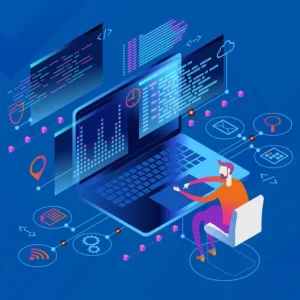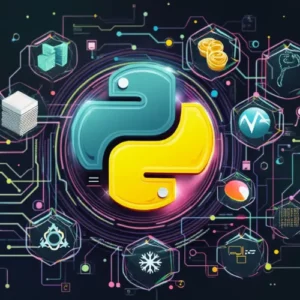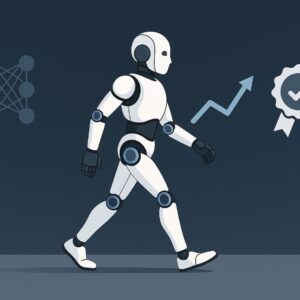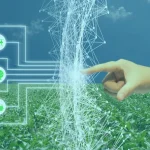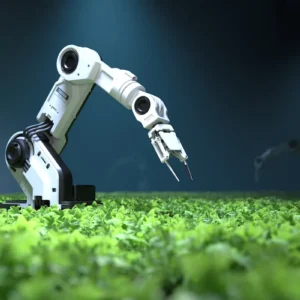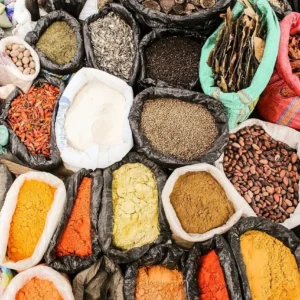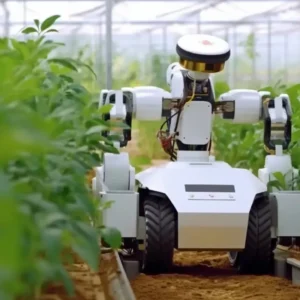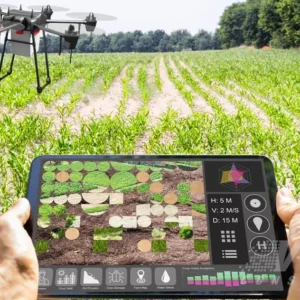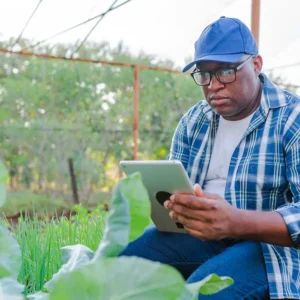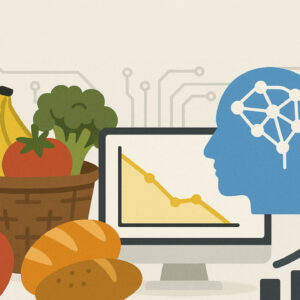The integration of AI in food production is a transformative development that promises to reshape how the food industry operates. From optimizing crop yields to improving food safety, artificial intelligence (AI) has opened new avenues for efficiency, sustainability, and innovation. As the global demand for food grows, AI offers cutting-edge solutions that can address challenges such as climate change, resource management, and the need for more nutritious products.
The Role of AI in Agriculture
One of the most significant applications of AI in food production is in agriculture, where it is helping farmers make data-driven decisions. AI-powered tools can predict weather patterns, detect diseases, and recommend the best times to plant or harvest crops. These advancements result in higher yields and lower waste, contributing to the overall sustainability of food production. Additionally, AI in food production allows farmers to use resources such as water and fertilizers more efficiently, which reduces environmental impacts.
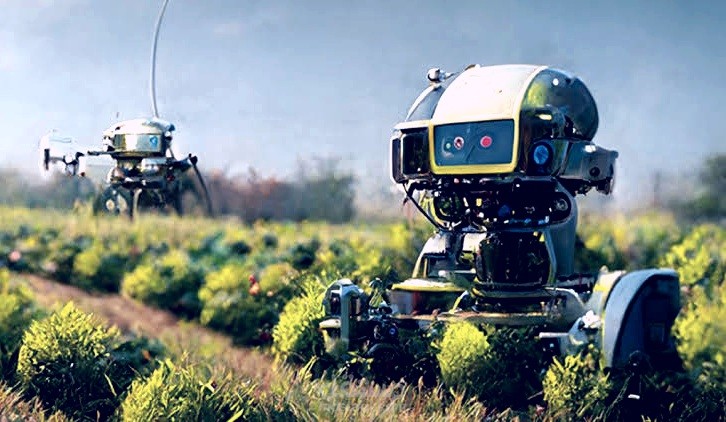
Optimizing Supply Chain Efficiency
AI is playing a critical role in streamlining the food supply chain. From farm to fork, AI helps track the movement of food products, ensuring they are delivered quickly and efficiently. Machine learning algorithms can analyze data from various points in the supply chain to identify bottlenecks and predict potential disruptions. This predictive ability is vital in reducing food spoilage, minimizing waste, and keeping costs down, thus improving the overall efficiency of AI in food production systems.
Enhancing Food Safety with AI
Food safety is another area where AI is making a significant impact. Contaminated food can have severe consequences, including widespread illness and loss of consumer trust. AI technologies, such as computer vision and machine learning, are being used to detect contamination and ensure that food products meet safety standards. This real-time monitoring allows producers to identify potential risks early, reducing the likelihood of contaminated products reaching consumers. The use of AI in food production is crucial for maintaining the safety of the global food supply.
AI and Sustainable Food Production
Sustainability is a growing concern in the food industry, and AI is offering innovative solutions to address it. By analyzing large datasets, AI can optimize resource use, reduce food waste, and promote environmentally friendly practices. For example, AI-driven systems can monitor soil health and suggest the most effective irrigation techniques. Additionally, AI in food production can aid in developing alternative food sources, such as plant-based proteins, which are more sustainable than traditional meat production.
Precision Farming with AI
Precision farming is a new concept driven by AI that focuses on providing targeted inputs to specific areas of a farm. This practice uses data from sensors, drones, and satellite imagery to assess crop health and soil conditions. AI algorithms then analyze this data to recommend the precise amount of water, fertilizer, or pesticide needed for each section of the field. As a result, farmers can optimize yields and reduce costs. The ability to tailor inputs to specific areas is one of the many advantages of AI in food production.
Improving Product Development with AI
AI is also being used to innovate in food product development. By analyzing consumer preferences and market trends, AI can help manufacturers create new products that meet changing demands. For example, machine learning algorithms can analyze consumer data to identify flavor profiles that are likely to be successful. Furthermore, AI in food production can accelerate the process of testing new products, reducing the time it takes to bring them to market.
AI in Food Packaging
The use of AI extends beyond production and into packaging, where it helps improve sustainability and efficiency. AI-powered robots can handle food packaging processes more precisely, reducing waste and ensuring that products are packaged consistently. In addition, AI can be used to develop smart packaging that monitors the condition of food during transportation and storage, helping to extend the shelf life of perishable products. Through these innovations, AI in food production is contributing to a more sustainable and efficient packaging system.
Reducing Food Waste with AI
Food waste is a massive issue worldwide, and AI is helping tackle this problem. From production to consumption, AI can track and analyze food usage patterns to minimize waste. In restaurants and retail, AI systems can predict customer demand more accurately, ensuring that less food is discarded. In processing plants, AI can identify and repurpose imperfect products that might otherwise go to waste. AI in food production is playing a pivotal role in reducing food waste at every stage of the supply chain.
Challenges and Future of AI in Food Production
Despite its many benefits, implementing AI in food production comes with challenges. One of the main obstacles is the cost of technology, which can be prohibitive for small-scale farmers and producers. Additionally, there is a need for greater data transparency and security to ensure that AI systems are reliable and ethical. As AI continues to evolve, its applications in food production will likely expand, offering even more opportunities for innovation. The future of AI in food production looks promising, with the potential to revolutionize how food is produced, distributed, and consumed.
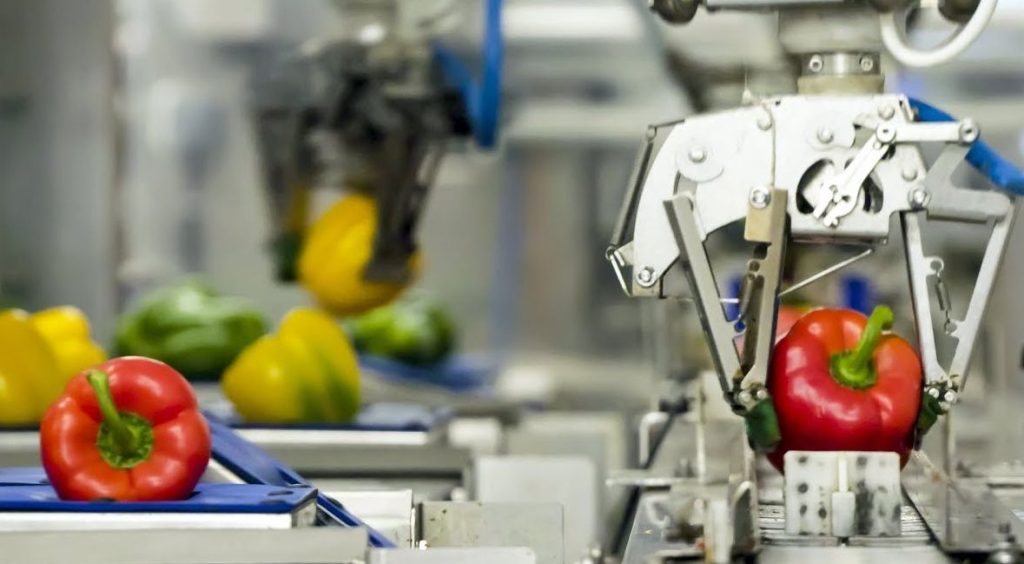
AI in Food Quality Control
One of the most promising applications of AI in food production is enhancing quality control processes. Traditional methods of ensuring food quality often involve manual inspections, which can be time-consuming and prone to human error. With AI-powered computer vision systems, producers can automatically inspect food items for defects, discoloration, or imperfections at a much faster rate and with greater accuracy. These AI systems can detect subtle changes in texture, shape, and color, ensuring that only products meeting high-quality standards reach consumers. This automation is crucial in large-scale food production environments, where consistency is key to maintaining brand reputation and customer satisfaction.
Additionally, AI can be used to predict and monitor the shelf life of food products. By analyzing environmental conditions like temperature, humidity, and exposure to light, AI can forecast the freshness of perishable items and alert suppliers when products are nearing their expiration date. This use of AI helps companies minimize waste while ensuring that consumers receive the freshest products possible.
Personalization and AI in Food Production
AI is increasingly being used to cater to personalized nutrition trends, where individual dietary needs and preferences are taken into account when producing food. With advancements in machine learning, companies can analyze consumer data, such as dietary preferences, health conditions, and purchasing behavior, to develop personalized food products or meal plans. This type of customization can be a game-changer for people with specific health concerns, such as diabetes or food allergies, as AI can help create products tailored to their unique needs.
For instance, AI-driven platforms can suggest recipes or meal plans based on a person’s nutritional requirements, preferences, and available ingredients. In the future, AI in food production could extend to personalized food manufacturing, where meals or snacks are 3D-printed or prepared on-demand to match an individual’s taste and nutritional profile. This trend toward personalization represents an exciting frontier where AI not only improves efficiency but also enhances the consumer experience.
AI’s Role in Ethical and Sustainable Food Choices
As consumer awareness of ethical and environmental issues grows, AI is helping to meet these demands by promoting transparency in food production. AI technologies can trace the origins of food products, ensuring that they are sourced ethically and sustainably. For example, blockchain technology, powered by AI, can provide a transparent record of how food is grown, harvested, and processed, allowing consumers to make informed choices.
This application of AI in food production is particularly important in industries such as seafood, where issues like overfishing and illegal sourcing are prevalent. By leveraging AI, companies can ensure that their products are sustainably sourced and free from unethical practices. This traceability is becoming a competitive advantage, as consumers increasingly prioritize sustainability and social responsibility in their purchasing decisions.
AI-Powered Robotics in Food Production
Robotics, combined with AI, is revolutionizing the physical processes involved in food production. AI-powered robots can perform repetitive tasks such as planting, harvesting, sorting, and packaging with greater precision and speed than human workers. In meat processing plants, AI-guided robots are being used to butcher animals more efficiently and hygienically, reducing the risk of contamination and improving overall product quality.
Moreover, robotic automation allows food production facilities to operate around the clock, significantly increasing productivity. This is particularly valuable in labor-intensive industries where human resources may be limited or expensive. The use of AI through robotics also addresses labor shortages in agriculture and food manufacturing, ensuring a continuous and efficient supply of food products.
Conclusion
The impact of AI in food production is undeniable. From improving agricultural practices to enhancing food safety, AI is revolutionizing the food industry at every stage of the supply chain. As the world faces growing challenges in food production, AI offers solutions that are both sustainable and efficient. While there are still challenges to overcome, the future of AI holds immense potential for driving innovation and ensuring that we can feed a growing global population sustainably.

